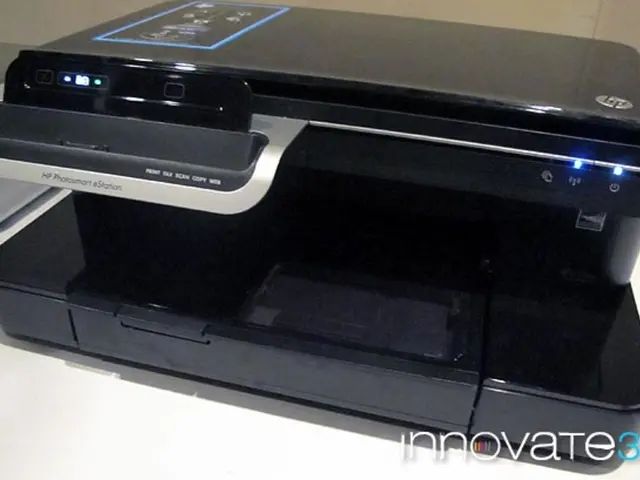Redefining the Processes of Furniture Distribution Networks
Revolutionizing Furniture Shopping: The Digital Transformation of the Industry
The furniture industry is undergoing a significant transformation, thanks to the integration of technology into every aspect of the supply chain. From logistics to sustainability, and consumer engagement, technology is driving change and enhancing the shopping experience for customers.
In the realm of logistics, AI-powered platforms like Shippabo are revolutionizing the way furniture is transported. Using predictive analytics, these platforms forecast container arrivals, flag potential disruptions, and provide real-time visibility across the shipping process. This not only reduces costs but also prevents delays, improving inventory management and ensuring products are in the right place at the right time.
Regarding sustainability, the furniture manufacturing sector is embracing eco-friendly materials such as bamboo, reclaimed wood, and recycled polymers. These materials not only reduce environmental impact but also contribute to regulatory frameworks that push companies to ensure traceability and compliance. Automation and smart machinery, integrated with IoT and robotics, optimize manufacturing workflows, lower waste, and improve consistency, supporting sustainable production practices.
On consumer engagement, digital transformation is reshaping the buying journey primarily through online channels. High-fidelity visualization technologies allow customers to interact with lifelike 3D models of furniture, enhancing confidence in remote purchases. Direct-to-consumer (D2C) strategies reduce intermediaries, enabling competitive pricing and transparent storytelling about product craftsmanship. Faster delivery options, including same-day or next-day services, and real-time tracking improve the last-mile customer experience, narrowing the gap between online convenience and physical store immediacy. Omnichannel strategies blend digital and physical retail elements, providing a seamless shopping experience.
Moreover, the furniture industry is prioritizing community engagement and social responsibility as core aspects of their mission. Local artisans are being supported, and collaborations with charities are becoming common. Community events, such as workshops for aspiring craftspeople, are being hosted by local furniture chains. The commitment to community engagement fosters personal growth and strengthens community spirit.
In summary, technology is driving precision logistics with AI and IoT, promoting sustainability via advanced materials and smart manufacturing, and enriching consumer engagement through immersive visualization, D2C models, and expedited delivery, transforming the entire furniture supply chain from production to purchase.
For more information about this topic, visit directfactoryfurniture.com.
[1] Shippabo. (n.d.). About Us. Retrieved from https://www.shippabo.com/about-us [2] McKinsey & Company. (2020). The digital transformation of furniture retail. Retrieved from https://www.mckinsey.com/industries/retail/our-insights/the-digital-transformation-of-furniture-retail [3] MaterialDriven. (2020). The Future of Furniture Manufacturing is Sustainable. Retrieved from https://www.materialdriven.com/the-future-of-furniture-manufacturing-is-sustainable/ [4] Walmart. (2020). Walmart's supply chain technology. Retrieved from https://corporate.walmart.com/global-responsibility/our-impact/sustainability/supply-chain/technology/
- The integration of AI in logistics, as demonstrated by platforms like Shippabo, predicts container arrivals, flags potential disruptions, and offers real-time visibility, thereby reducing costs, preventing delays, and improving inventory management.
- The furniture industry is adopting eco-friendly materials, such as bamboo, reclaimed wood, and recycled polymers, and embracing smart manufacturing practices to lower waste, optimize workflows, and ensure traceability and compliance with regulatory frameworks.
- Digital transformation in consumer engagement allows customers to interact with lifelike 3D models of furniture, shop directly from manufacturers, and enjoy faster delivery options and real-time tracking, creating a seamless shopping experience.
- Prioritizing community engagement, the furniture industry supports local artisans, collaborates with charities, and hosts community events, fostering personal growth and strengthening community spirit.
- Leveraging technology, the furniture supply chain is undergoing a transformation by enhancing logistics, encouraging sustainability, and enriching consumer engagement, which will lead to the development of smart and innovative designs.
- By embracing technology, the furniture industry is revolutionizing the lifestyle of customers, making it easier and more convenient to choose smart and eco-friendly solutions for their homes.




